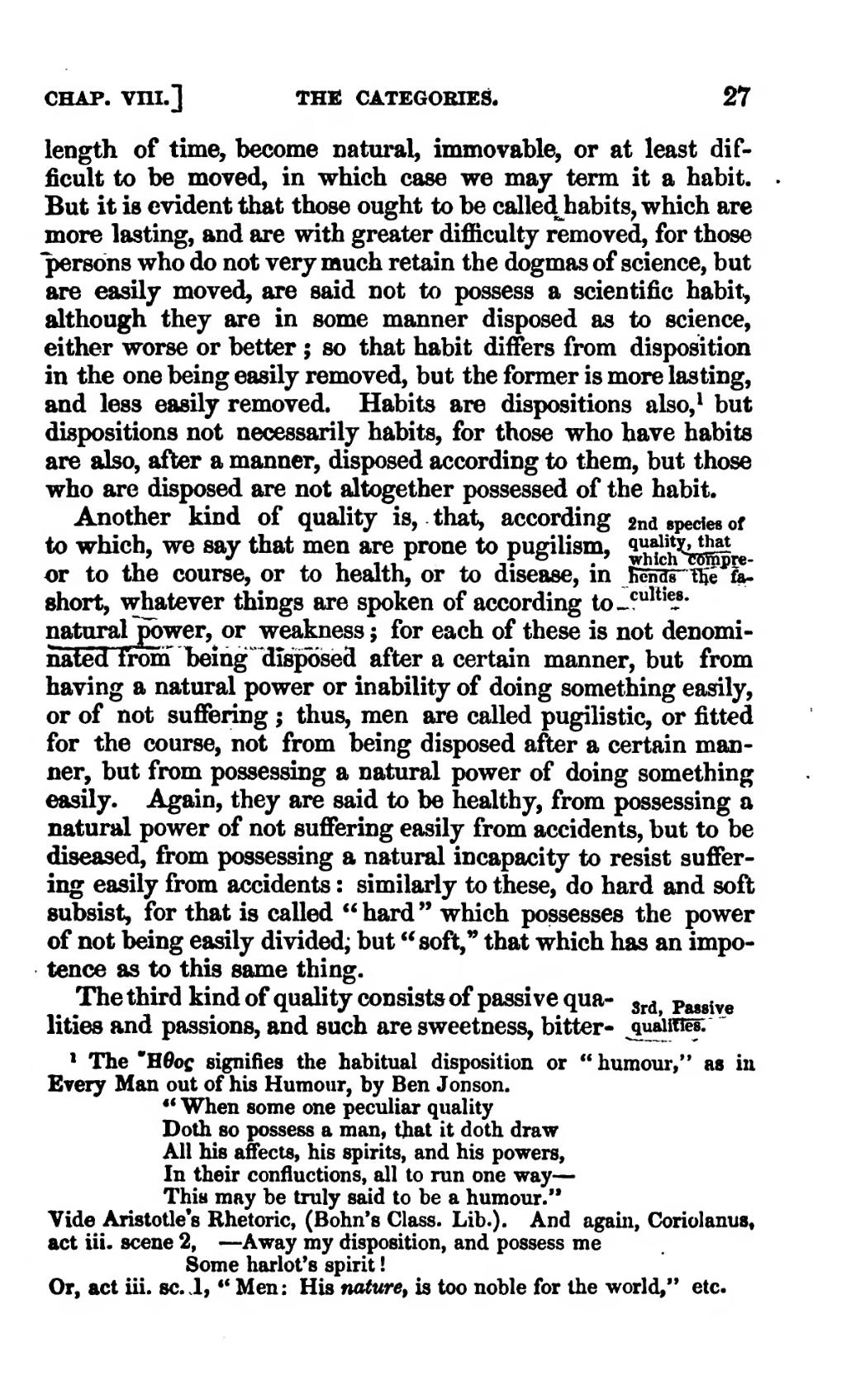length of time, become natural, immovable, or at least difficult to be moved, in which case we may term it a habit. But it is evident that those ought to be called habits, which are more lasting, and are with greater difficulty removed, for those persons who do not very much retain the dogmas of science, but are easily moved, are said not to possess a scientific habit, although they are in some manner disposed as to science, either worse or better; so that habit differs from disposition in the one being easily removed, but the former is more lasting, and less easily removed. Habits are dispositions also,[1] but dispositions not necessarily habits, for those who have habits are also, after a manner, disposed according to them, but those who are disposed are not altogether possessed of the habit.
2nd species of quality, that which comprehends the faculties. Another kind of quality is, that, according to which, we say that men are prone to pugilism, or to the course, or to health, or to disease, in short, whatever things are spoken of according to natural power, or weakness; for each of these is not denominated from being disposed after a certain manner, but from having a natural power or inability of doing something easily, or of not suffering; thus, men are called pugilistic, or fitted for the course, not from being disposed after a certain manner, but from possessing a natural power of doing something easily. Again, they are said to be healthy, from possessing a natural power of not suffering easily from accidents, but to be diseased, from possessing a natural incapacity to resist suffering easily from accidents: similarly to these, do hard and soft subsist, for that is called "hard" which possesses the power of not being easily divided, but "soft," that which has an impotence as to this same thing.
3rd, Passive qualities. The third kind of quality consists of passive qualities and passions, and such are sweetness, bitter-- ↑ The Ἦθος signifies the habitual disposition of "humour," as in Every Man out of his Humour, by Ben Jonson.
"When some one peculiar quality
Doth so possess a man, that it doth draw
All his affects, his spirits, and his powers,
In their confluctions, all to run one way—
This may be truly said to be a humour."Vide Aristotle's Rhetoric, (Bohn's Class. Lib.). And again, Coriolanus, act iii. scene 2,
—Away, my disposition, and possess me
Some harlot's spirit!Or, act ii. sc. 1, "Men: His nature, is too noble for the world," etc.
